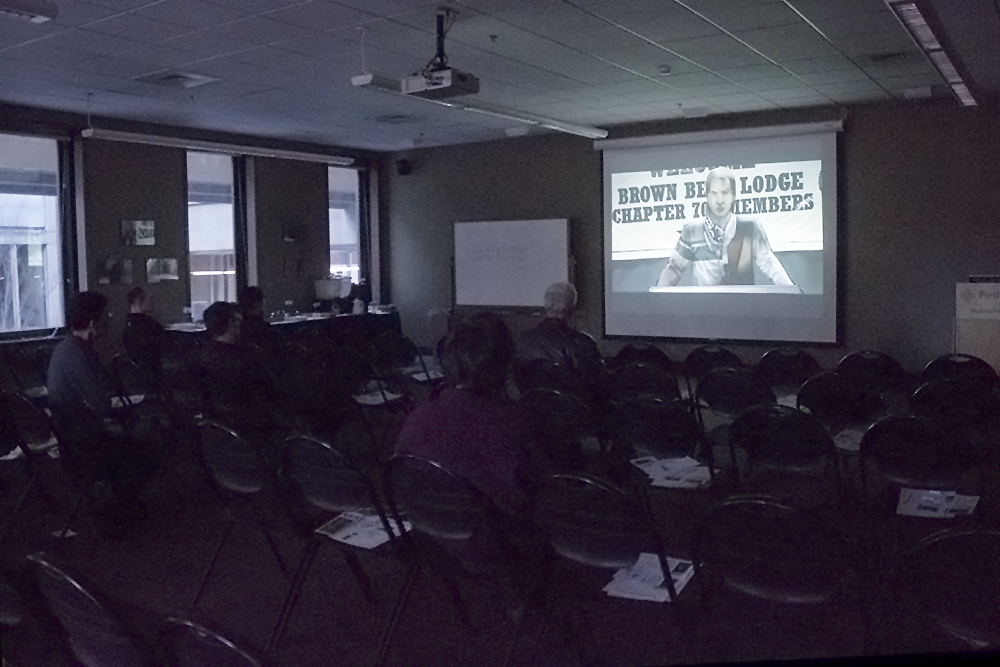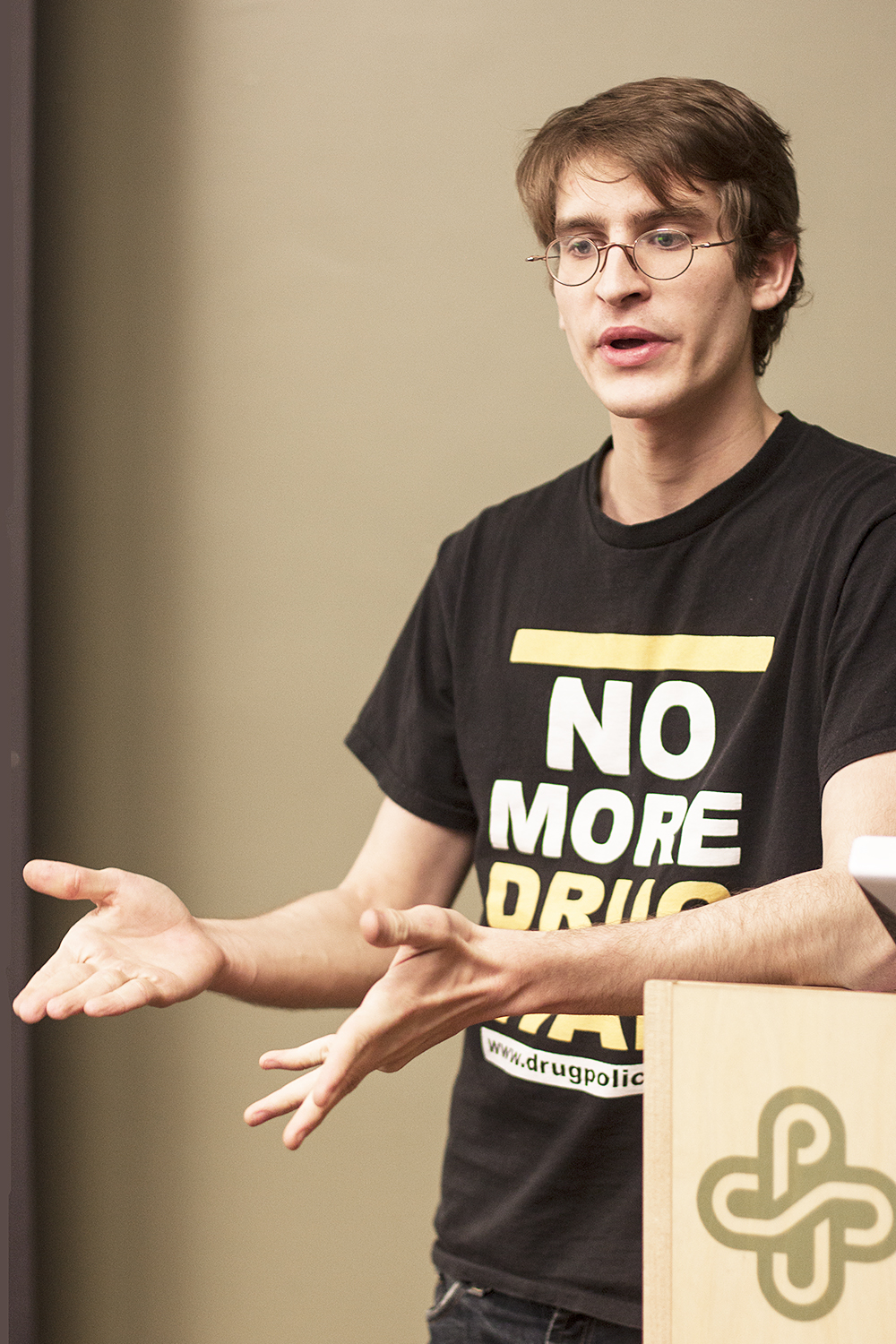On March 8th and 9th, PSU’s chapter of Students for Sensible Drug Policy (SSDP) hosted a film festival intended to provide insight into the war on drugs through the lens of cinema. Over the course of the festival, SSDP screened The House I Live In, Trainspotting, The Union and finally, A Scanner Darkly. The student group also arranged for presentations by the Portland State criminology department’s Dr. Mark Leymon and Lissa Kaufman of Student Legal services (SLS). Ultimately, the film festival created a stage for discourse regarding U.S. drug policy and encouraged attendees to think critically about the effects of the drug war from both a domestic and global perspective.
The Drug War on Film
On March 8th and 9th, PSU’s chapter of Students for Sensible Drug Policy (SSDP) hosted a film festival intended to provide insight into the war on drugs through the lens of cinema. Over the course of the festival, SSDP screened The House I Live In, Trainspotting, The Union and finally, A Scanner Darkly. The student group also arranged for presentations by the Portland State criminology department’s Dr. Mark Leymon and Lissa Kaufman of Student Legal services (SLS). Ultimately, the film festival created a stage for discourse regarding U.S. drug policy and encouraged attendees to think critically about the effects of the drug war from both a domestic and global perspective.
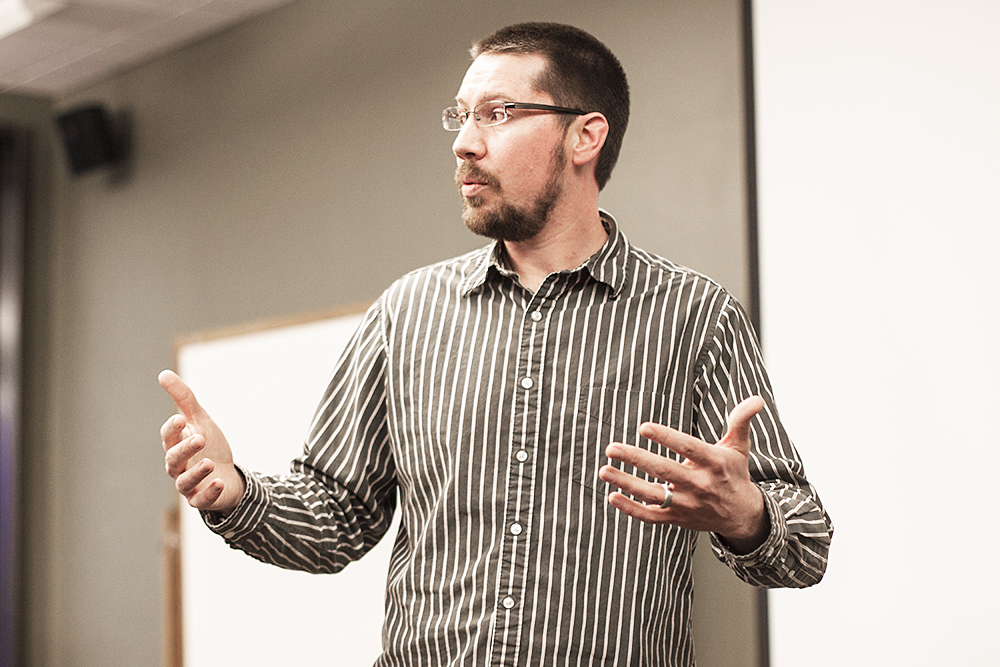
During a presentation between films, Dr. Mark Leymon, a criminology professor at Portland State, claimed that “We aren’t arresting college students [who make up a large portion of drug users]. . .we choose to apply the war on drugs discriminatorily.” “It’s not about drugs, right?” he asked. “It’s about particular people.”
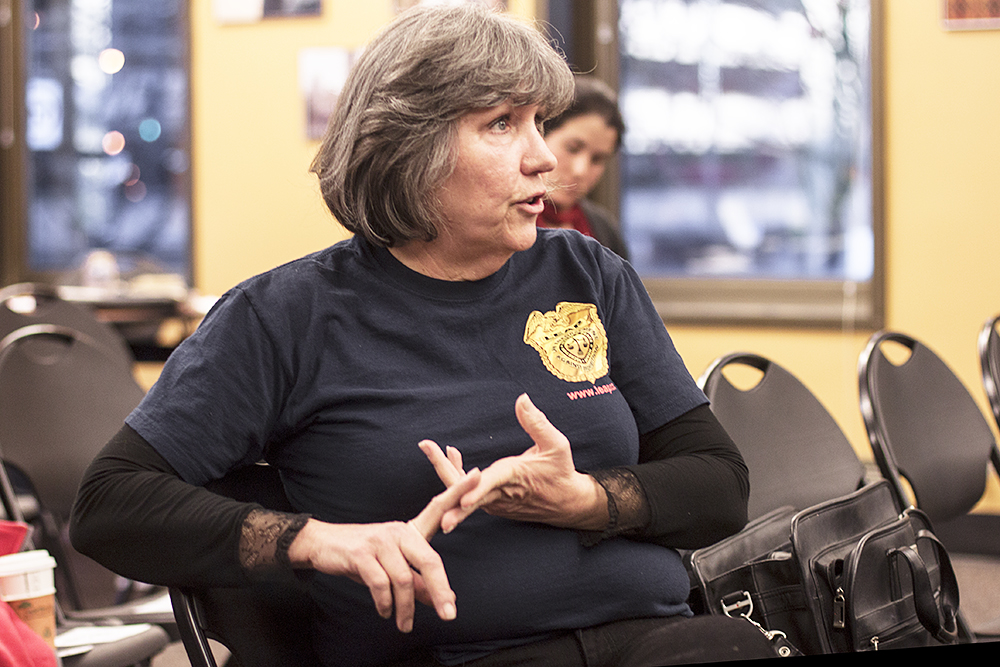
Shelley Fox-Loken–a retired parole/probation officer and correctional counselor belonging to Law Enforcement Against Prohibition–debated Leymon over the merits of decriminalization and legalization. She maintained that legalization was the better option.
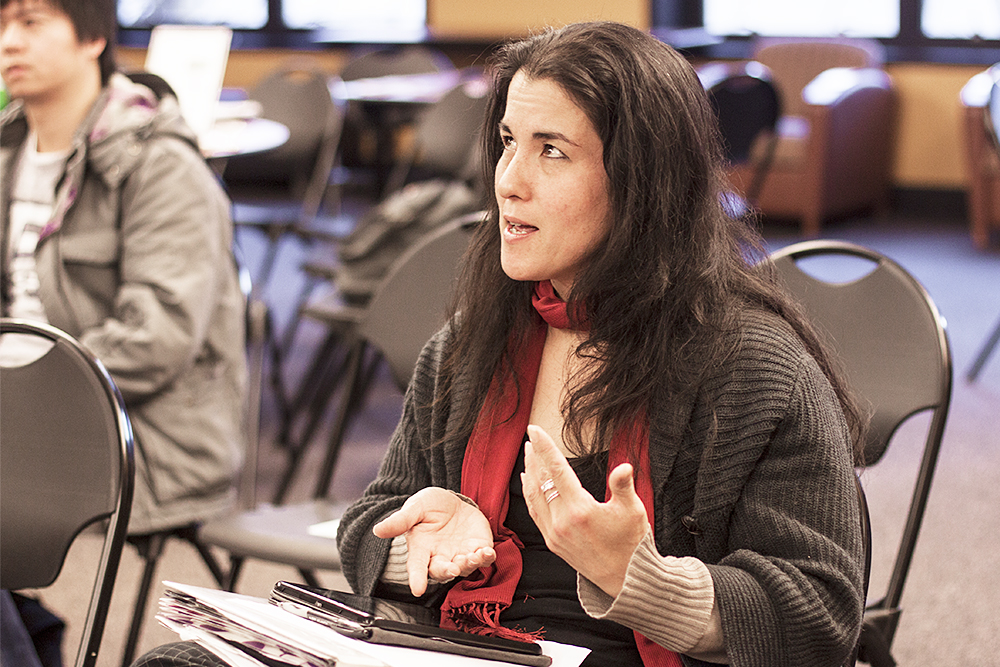
Anna Preble, who is pursuing a BA in political science, was one of many who advocated for amendments to U.S. drug policy, noting that it would be in theinterest of nations like Guatemala and Mexico–countries that have suffered tens of thousands of casualties over the course of the war on drugs.
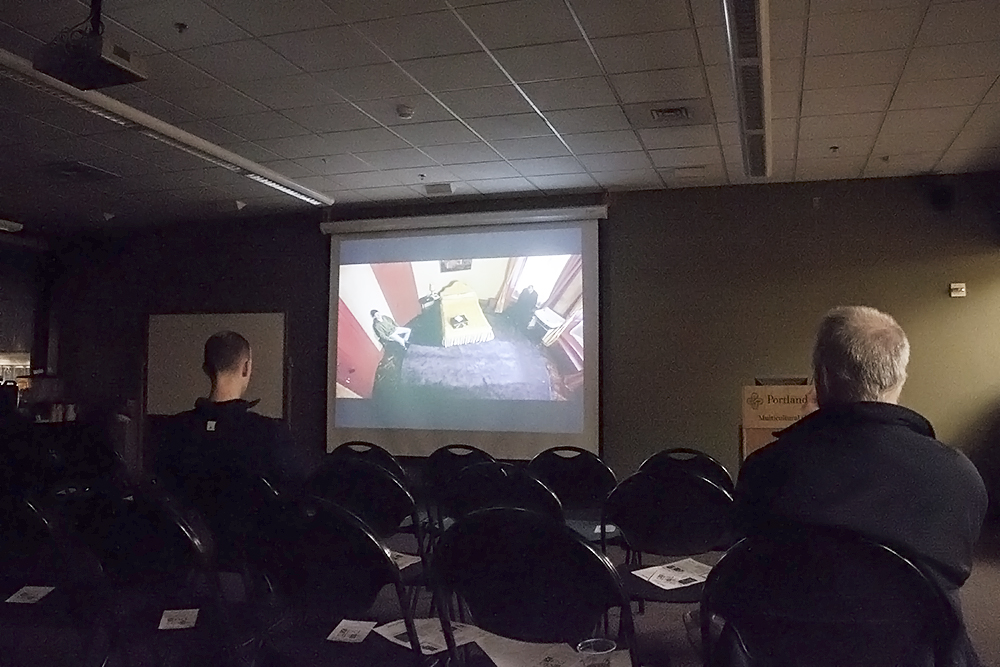
Attendees watched Trainspotting–the second film presented on March 8th during the first half of the film festival.
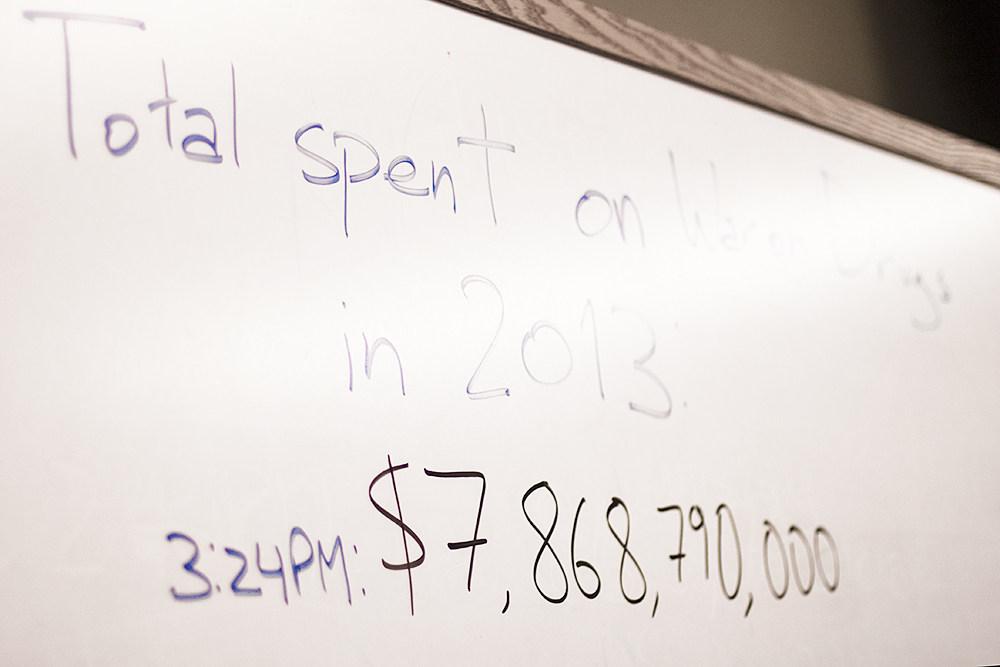
Beginning on March 9th, SSDP members regularly updated an estimate of the money spent on the drug war to illustrate its toll on the national budget.
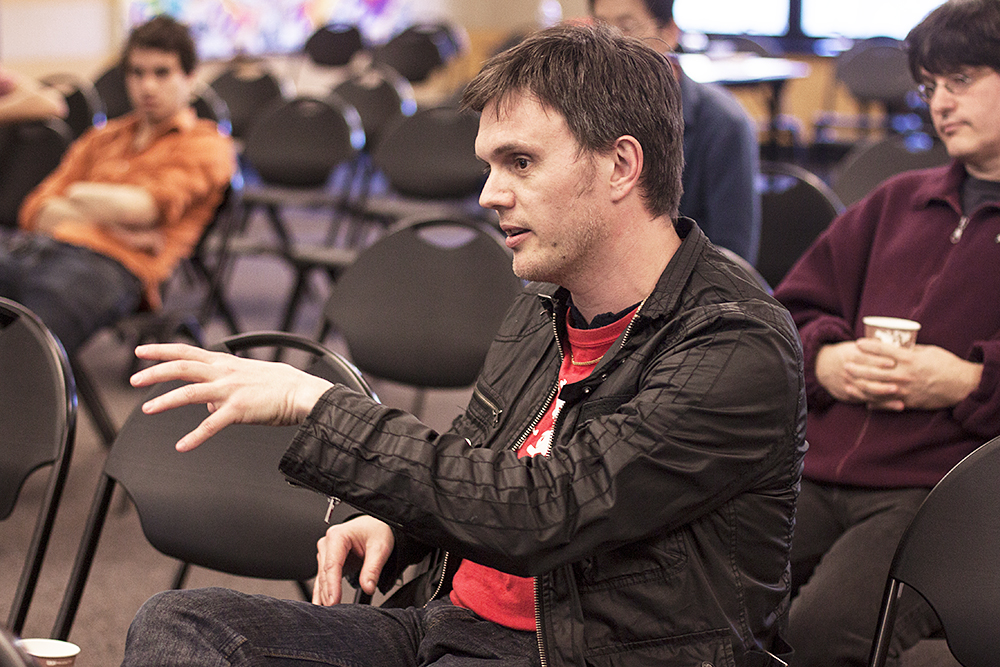
Arnaud Simon, though not a PSU student, attended the film festival to provide insight related to his experiences of fighting for drug policy reform in France.
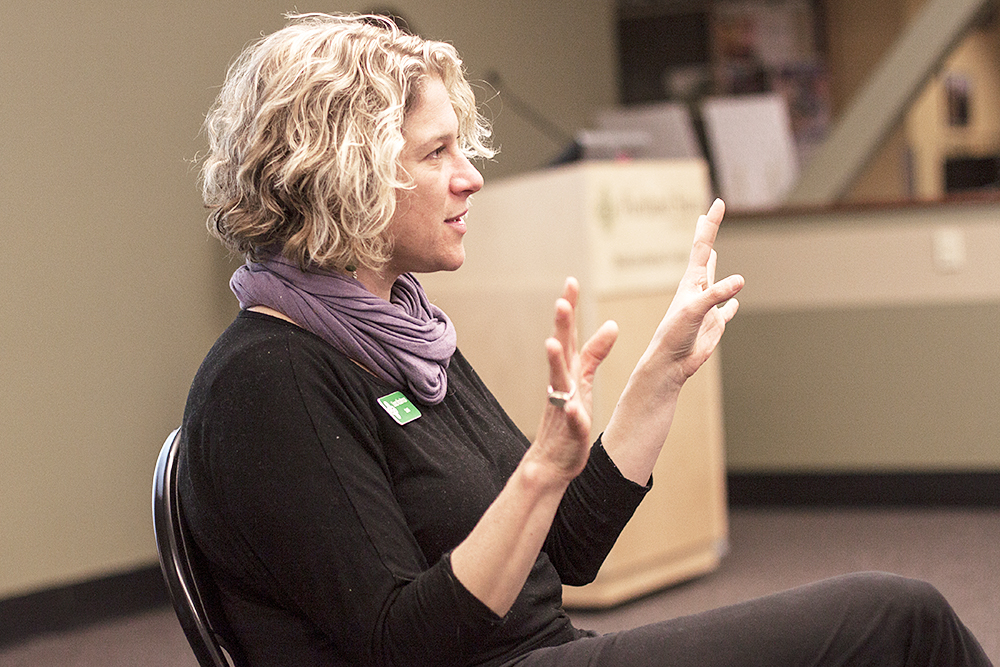
While advising attendees on how to handle interactions with police officers, Kaufman urged students to “cooperate with the police [and not] resist arrest.” Resisting arrest is a serious charge in itself.
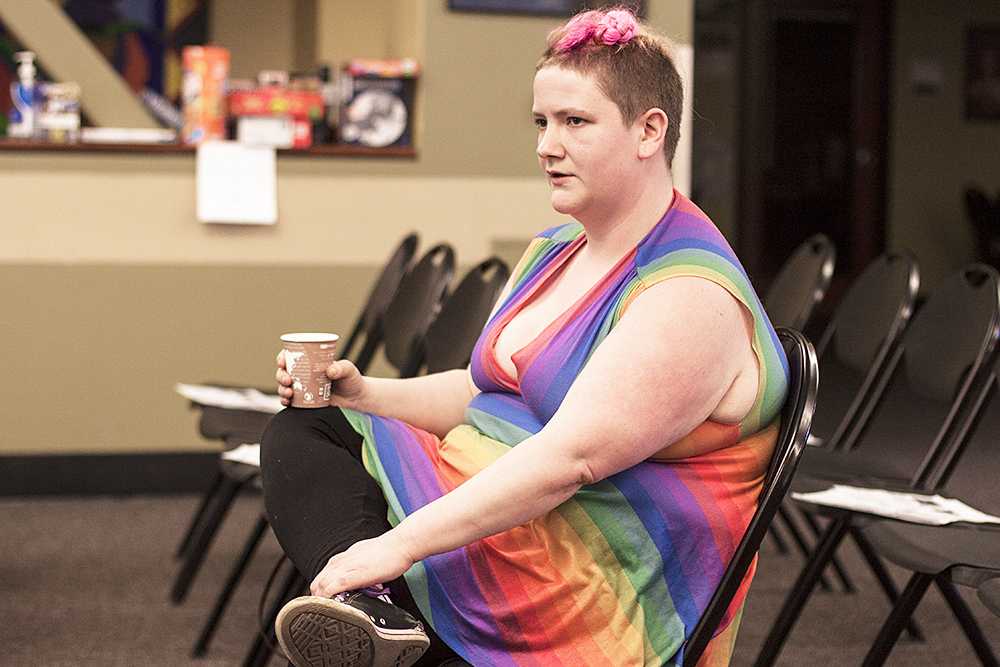 In an argument for legalization on religious grounds, Katharine Schreek–a PSU student presently deciding on a new major–stated that the U.S. constitution’s first amendment ought to seen as a defense of citizens’ rights to consume drugs for spiritual reasons.
In an argument for legalization on religious grounds, Katharine Schreek–a PSU student presently deciding on a new major–stated that the U.S. constitution’s first amendment ought to seen as a defense of citizens’ rights to consume drugs for spiritual reasons.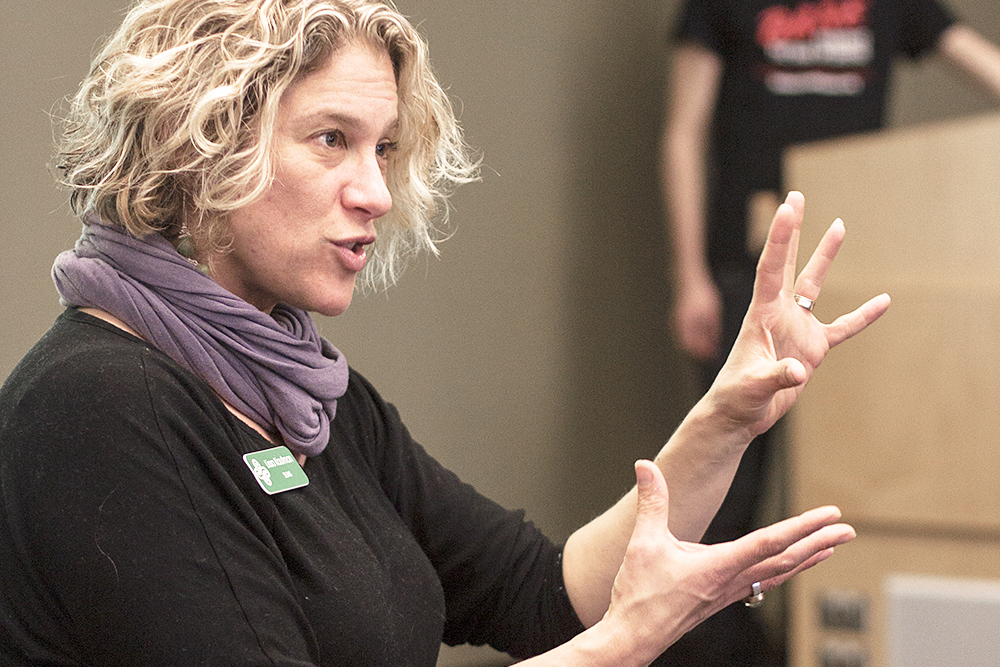
Lissa Kaufman of PSU Student Legal Services (SLS) gave her own presentation on the second day of the film festival. She held that “[SLS’s] mission really has to do with making sure [students] graduate.


